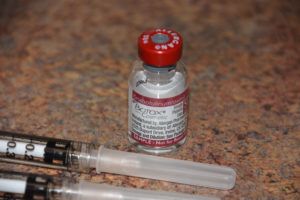Botox and injectable fillers are the mainstay of non-surgical facial rejuvenation. Besides creating a relatively immediate change with less facial wrinkles and folds, they provide a great psychological boost to one’s self-image and sense of attractiveness. Often I see patients that undergo these treatments before a major event such as a child’s wedding or a class reunion, serving as a testament to their profound aesthetic benefits even if they are not permanent
While most patients having these treatments are doing them with long-term anti-aging purposes, some seek them to make themselves feel better for other reasons as well. The patient afflicted with cancer and undergoing chemotherapy and radiation treatments is one example. In my Indianapolis plastic surgery practice, I will occasionally see the cancer patient who is in some phase of their therapy who wants such treatments.

In the non-immunosuppressed patient, however, there is little information for or against their use. Based on my research, I can find no published contraindications to their use in patients with an intact immune system, even if they are undergoing active treatment. Similarly, there is no medical evidence that suggests the duration of the effects of Botox or injectable fillers is less in the chemotherapy or irradiated patient. My experience in these patients would indicate the same…no different than the typical aesthetic patient.
Cancer patients may seek aesthetic treatments as a boost to their shattered self-image and awareness of their own mortality. Check with their oncologist to determine their immune system status although most patient’s know their white count levels. There is no reported interactions between the localized facial effects of Botox and any of the injectable fillers and the systemic effects of chemotherapy in particular.
Barry L. Eppley, M.D., D.M.D.
Indianapolis, Indiana


